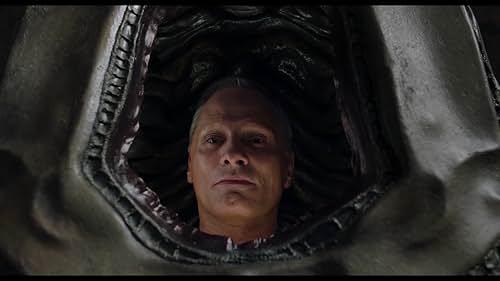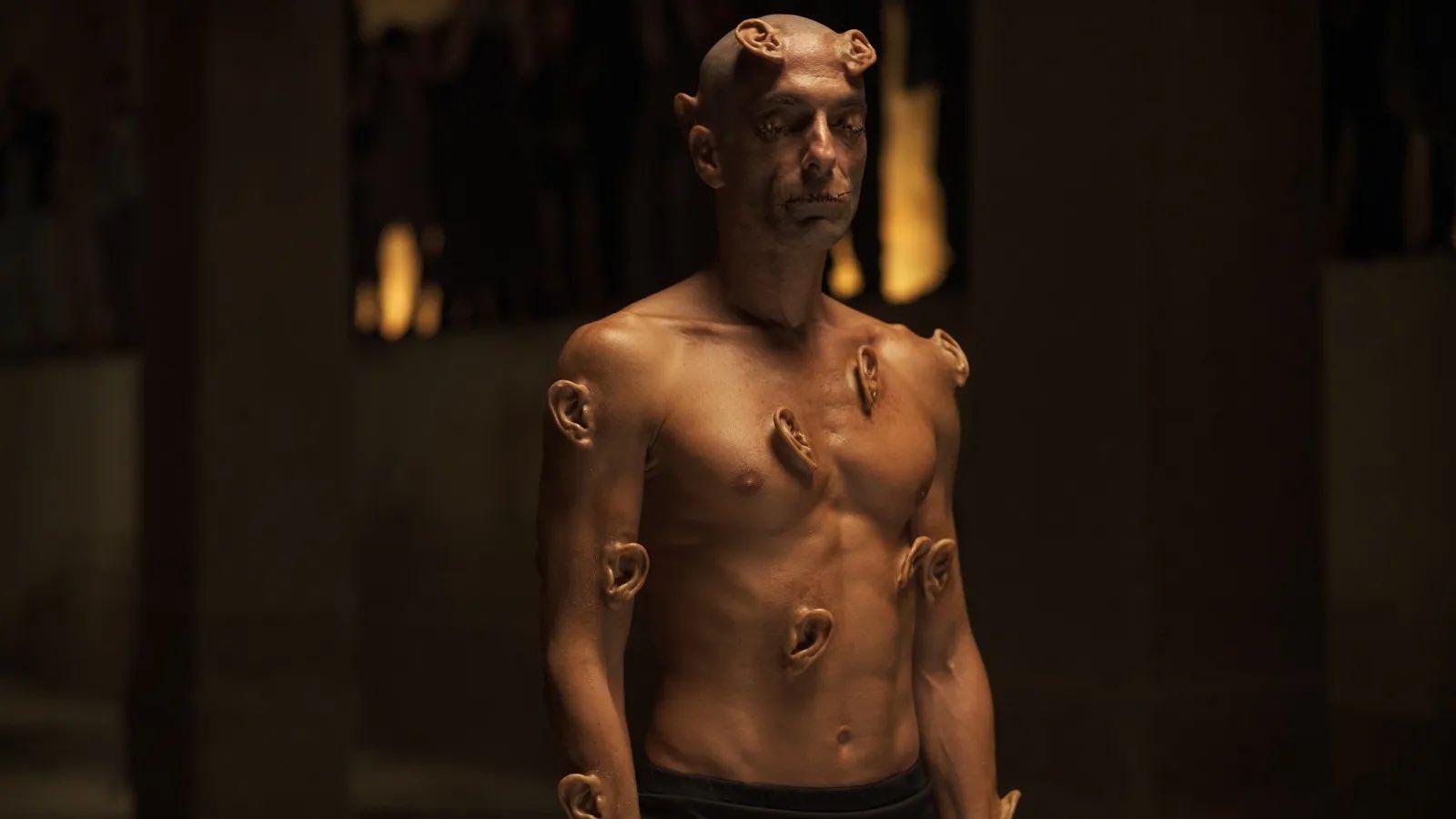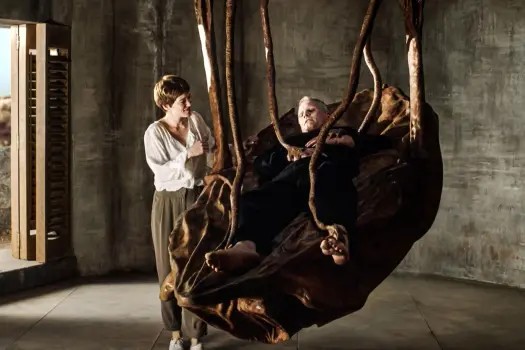Crimes of the Future (2022)

“Crimes of the Future” is a 2022 science fiction horror film written and directed by David Cronenberg. The film stars Viggo Mortensen, Léa Seydoux, and Kristen Stewart, and marks a return to the genre themes for which Cronenberg is renowned, including body horror and the intersection of technology and the human body.
Set in a dystopian future where the boundaries between the human body and technology have become increasingly blurred, the film explores a world where human evolution has taken a peculiar and unsettling turn. In this future, people experience new forms of biological mutations, and the concept of pain has become a rare sensation due to advanced medical technologies.


The story follows Saul Tenser (Viggo Mortensen), a performance artist who has developed the ability to grow new and unusual organs. These organs are not merely for show; they are harvested and displayed as part of his art, which explores themes of bodily transformation and the intersection of art and physicality. Saul’s performances attract both admiration and horror, making him a controversial figure in a society that is grappling with rapid and unsettling changes.



Lena (Léa Seydoux), Saul’s partner and fellow artist, assists him in his performances, while Timlin (Kristen Stewart), a government inspector with a fascination for Saul’s work, becomes entangled in their world. As Saul’s condition progresses and his performances become increasingly provocative, he and those around him confront the ethical and existential implications of his art.
“Crimes of the Future” is noted for its provocative and thought-provoking content, continuing Cronenberg’s exploration of body horror and the impact of technological advancements on human identity. The film’s disturbing imagery and themes of bodily transformation challenge the viewer’s perceptions of the human form and the nature of evolution.
The film received a range of reviews, with praise for its originality, thematic depth, and the performances of the cast. David Cronenberg’s return to body horror is seen as a compelling and unsettling examination of the future of humanity and the nature of physical and artistic expression.











